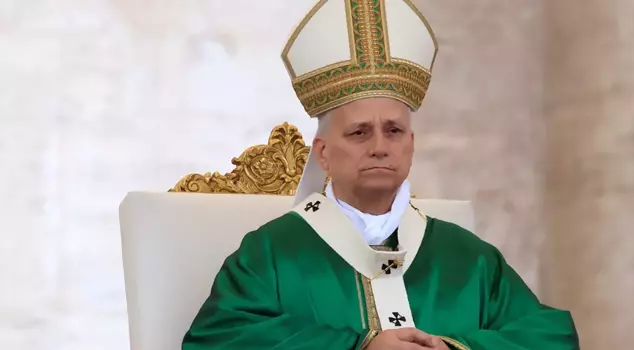
07.10.2025 14:16
The Vatican announced that Pope Leo XIII will make his first foreign visit to Turkey. The Pope will visit İznik from November 27 to 30 to commemorate the 1700th anniversary of the Council of Nicaea, and after Turkey, he will travel to Lebanon.
The spiritual leader of Catholics and the President of the Vatican City, Pope Leo XIII, will make his first foreign visit to Turkey. The Vatican announced that Pope Leo will visit Turkey from November 27 to 30. The visit will be held to commemorate the 1700th anniversary of the Council of Nicaea.
According to a statement from the Vatican, after his visit to Turkey, the Pope will travel to Lebanon from November 30 to December 2.
POPE FRANCIS HAD BEQUEATHED
Pope Francis passed away on April 21, 2025. It was revealed that after his death, he had instructed, "If I am not alive, my successor must definitely go to Nicaea."
Cardinal Robert Francis Prevost, who was elected as the 267th pope of the Catholic Church on May 8, 2025, is the second pope from the Americas after Argentine Pope Francis and the first pope from the USA. Prevost uses the name Leo XIII as his papal name.
Pope Leo XIII, who officially began his duties in a ceremony on Sunday, May 18, met with Ecumenical Patriarch Bartholomew the next day. Later statements from the Patriarchate indicated that the Pope expressed a strong desire to travel to Turkey this year to commemorate the 1700th anniversary of the gathering of the Council of Nicaea.
The Pope stated, "My election to this office coincided with the 1700th anniversary of the First Ecumenical Council of Nicaea. This Council represents a fundamental stage in the development of the faith shared by all churches and religious communities... As the Bishop of Rome, I see it as one of my primary duties to ensure the restoration of full and clear unity among all who share the same faith in the Father, the Son, and the Holy Spirit."
ATATÜRK HAD NOT ALLOWED
It was revealed that in 1924, Mustafa Kemal Atatürk did not allow a large Orthodox ceremony to be held in Nicaea on the grounds that "Turkey will not allow any shadow to be cast on its religious and national sovereignty."
Instructions were given to the Nicaea District Governorate and the Bursa Governorship, stating that it was "problematic" for foreign religious delegations to hold ceremonies in Nicaea.
Regarding the issue, Atatürk was reported to have stated, "Turkey does not allow the political or ecumenical claims of another country or religious authority on its territory. Religious ceremonies should not exceed the limits of worship."
WHY IS THE COUNCIL OF NICAEA IMPORTANT?
The historical council, known in Latin as Nicaea, was the first ecumenical council meeting held on May 20, 325, with the participation of more than 300 bishops, including the Pope's envoys and representatives from Eastern churches.
The Council of Nicaea was organized by Roman Emperor Constantine, who recognized Christianity as a "legitimate" religion.
This meeting aimed to put an end to ongoing debates regarding certain rituals and elements of faith. One of the main ongoing impacts of the Council of Nicaea on Christian belief today is the recognition of the divinity of Jesus.
The meeting, held hundreds of years before the split between Eastern and Western churches, is seen as a symbol of "unity" for the Christian world.
The participation of the Pope of the Catholic Church in the anniversary of this meeting is interpreted as a step towards unity.
This year's holy year (jubilee) of the Catholic Church also increases the symbolic significance of the 1700th anniversary celebrations.
Additionally, since Nicaea is located within the borders of Turkey today, a possible visit is seen as important not only for the rapprochement between Christian denominations but also for interfaith dialogue and geopolitical developments concerning the region, such as the Middle East and Russia.